A Space That Holds
Why we opened Index, what we've learned, and how we're building a business to last decades.
Here are some of the things that have happened at Index since we opened our space in June 2023:
We witnessed a total eclipse of the sun from the roof of our building, watched a 10-minute presentation on the adolescent illegal activities of one of our members, and fried 40 fresh sardines while aiming the meeting room fan toward an open window. We discussed when technology makes us more human, whether and how subcultures can exist in the age of platform technology, and how to navigate creative stagnation amid cultural abundance. We danced on tables celebrating XXIX’s 10th anniversary, toasted a member at her wedding dinner, launched a radio station, and made heaps of handmade pasta. We learned from artists how to think about mending, crafted speakers from textiles, and made prints in collaboration with the spring sunshine. We befriended dogs large and small, met newborn babies, boiled dozens of eggs, ate as many ice cream cones, and hosted a 70-person white elephant.
We founded Index as a business within garden3d in March 2021, as the world reckoned with social distancing and pandemic-imposed isolation. The premise of our space is not a new idea. Many people who belong to community gardens, spiritual groups, sports or hobby clubs, or even political committees can tell you that when communities are given space to share, cultivate relationships, and learn from one another, the people in those communities flourish.
Our space takes cues from institutions like Pioneer Works, and PS1, as well as the long history of artist-run spaces in New York like E-Flux, Artists Space, and FOOD, that push past the traditional role of the museum to create opportunities for connection, celebration, and mutuality. We’re also learning from peers like School for Poetic Computation, Trust, and NYC Resistor how to develop community models for education and knowledge sharing today.
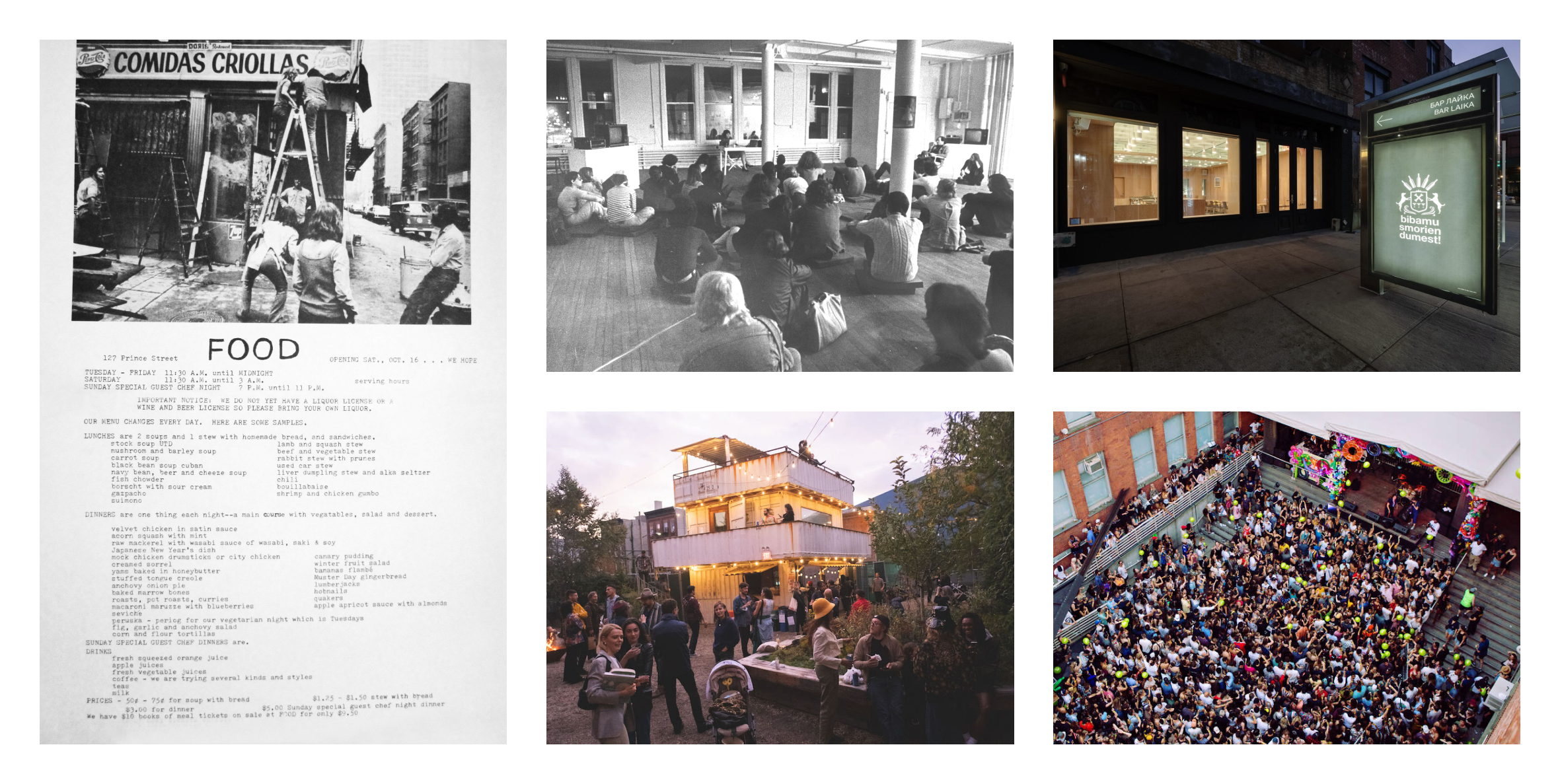
Artists in the ‘60s involved in the Fluxus movement were experimenting with the variability of outcomes that emerge when people interact with parameters. A space, like a Fluxus score, is a conceptual framework designed to guide a specific action or interaction, while allowing for as many interpretations and outcomes as there are participants in the space and moments in the day.
We wanted to build a haven for creative people to find each other, trusting that, if we built a safe and solid framework, the outcomes would be varied, diverse, and always changing — an expression of the community from which they emerge.
Why Index
For our community, the pandemic was an inflection point in the latent sense of disconnection that had been simmering for a generation. We awoke from the fever dream of Covid to find that the city had transformed around us, offering no shortage of trendy spaces to photograph a perfect matcha latte or sip a $25 dirty martini. But amid this abundance of surface-level experiences, basic needs were being overlooked. We lacked spaces to be together organically, parallel playing the games of our lives, building the relationships that bond over seasons.
We built Index to meet these needs, creating a space that bridges the personal and the collective. Situated on an island within an island — a triangle intersecting Little Italy, Chinatown, and Tribeca — Index was designed not by corporate executives speculating on the needs of a hypothetical user base, but by us, members of the community we sought to serve. We focused on what we knew would be both essential and joyful: a workspace that made up the gaps opened by remote work culture, with comfortable areas for focus and calls, a communal dining space, and a venue for events that could host hundreds of guests.
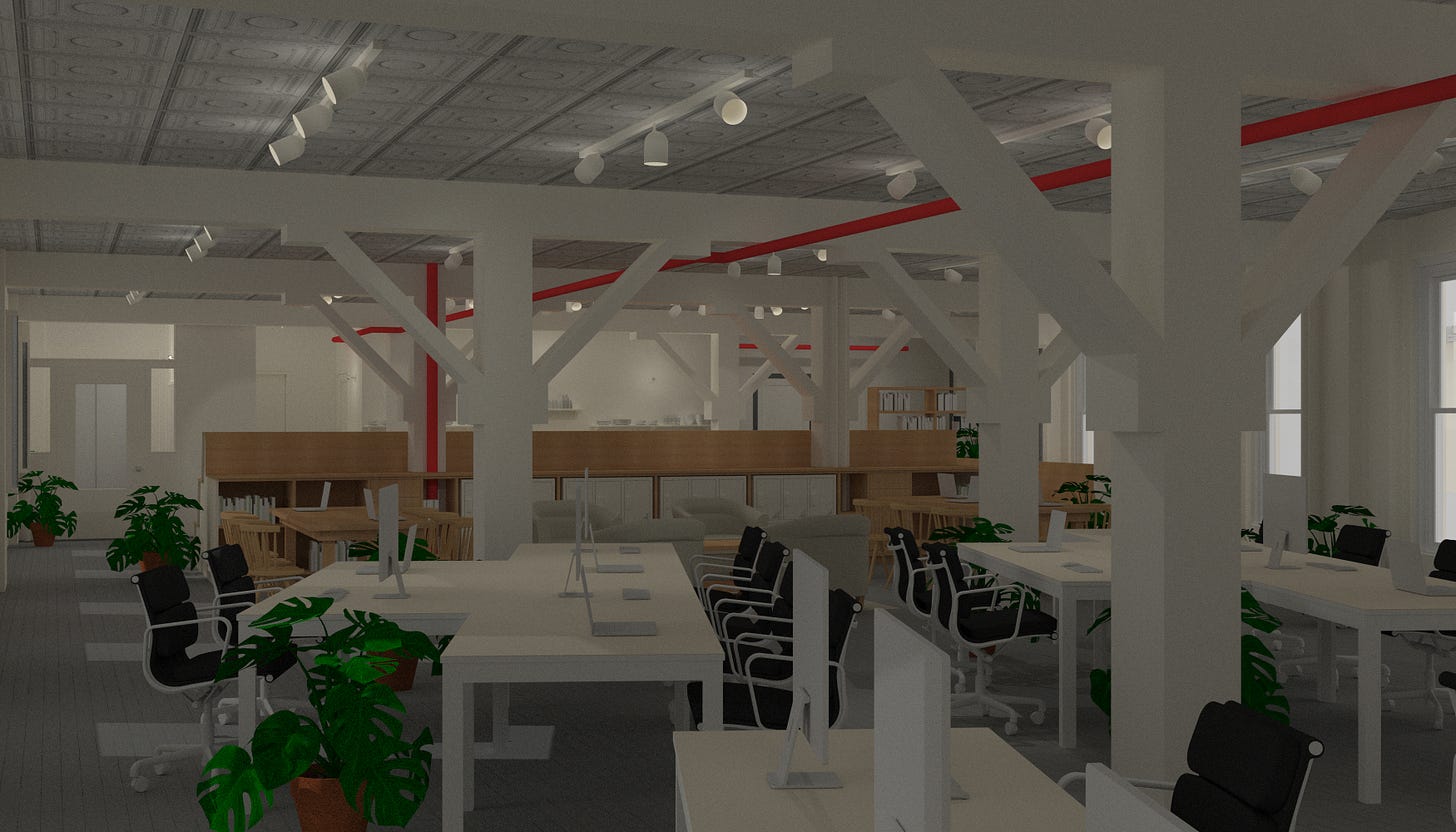
Our space was designed to be a vessel, or a carrying bag, expanding, contracting, and adapting its form to hold what its members bring inside. There are no logos on the walls, no branded mugs in the kitchen. We are not selling you affiliation or clout. Our roster of members isn’t part of the marketing plan. When you sign up to join us, you’re signing up for a space to use as you need it.
In this spirit, we have always made it a point to take every opportunity for financial transparency — both to give our members a greater sense of shared ownership, and as a record or model for people like us who might want to open their own local community spaces.
It Takes a Village (to Keep the Lights On)
For the first nine months, we held the steering wheel at Index with white knuckles. Our finances depended almost entirely on selling co-working memberships. Programming, though it needed to sustain itself, became more of a marketing tool than a major driver of revenue: The more people to attend an event, join a workshop, or come to a party, the more people we could talk to, convey what makes our space special, and hopefully convert new members.
Though subsidized for our first six months by garden3d (who also paid ~$400k for the buildout of our space), in January 2024 we became responsible for covering rent, all staff hours, and paying back a loan on the buildout at $5k/month. Our expenses jumped way into the hole following this change, and I lost many nights’ sleep wondering whether the financial projections we’d labored over while we honed our lease agreement would ever manifest.
Many of our members also contributed time and money to our space in its early days of instability. Adam Ziel, one of our first members, helped build our communal tables and kitchen island before we opened, and has always been a resource to us, whether assembling a couch or helping carry a strangely shaped package upstairs.
Other members have used the space to bring together their own communities, and bolstered a secondary revenue stream for Index by booking our space for events like (un)commons, created by Marisa Rowland. Toshika Kosako even hosted her wedding dinner here after a ceremony at City Hall nearby.
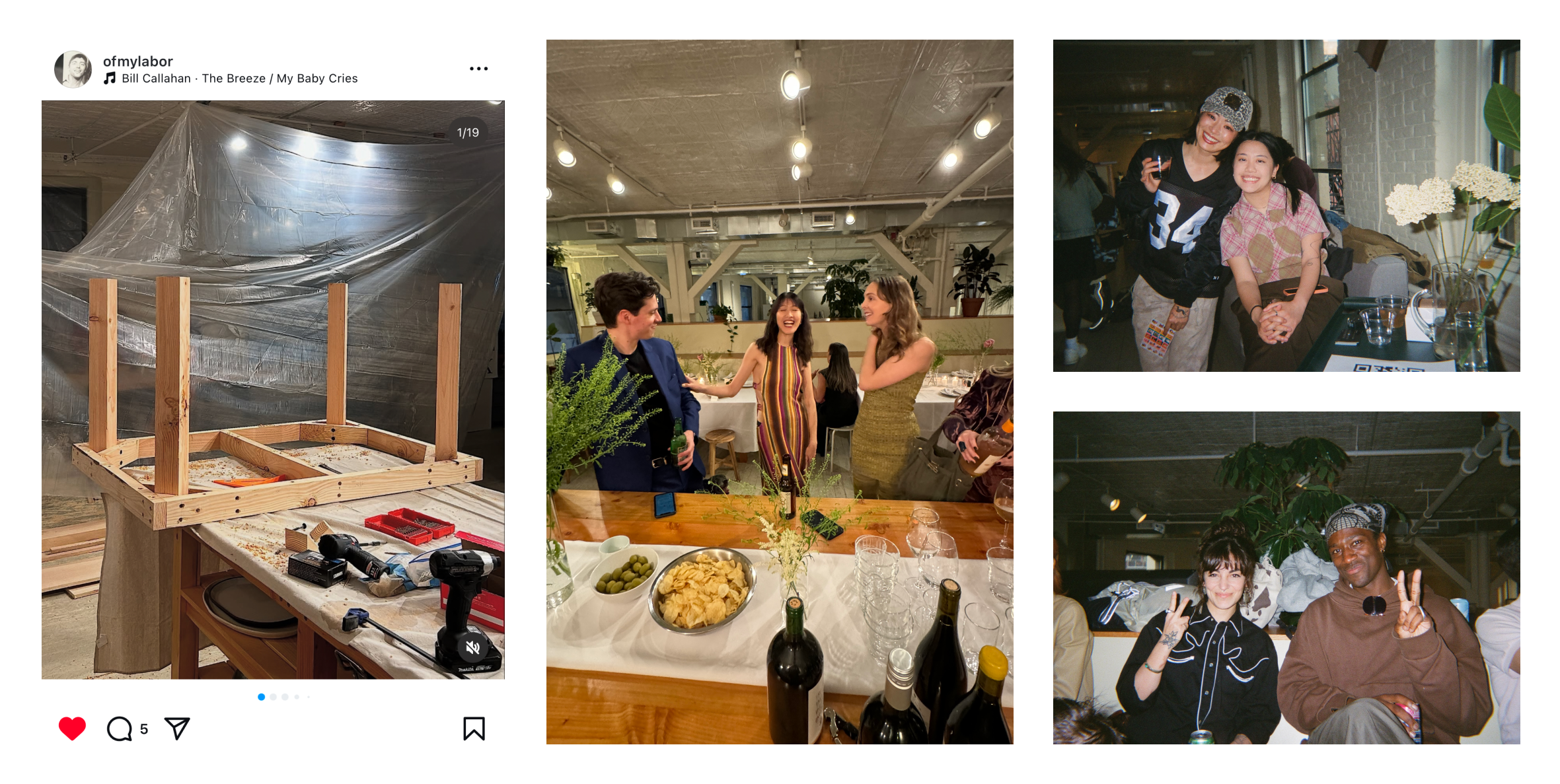
Co-working (and public programming) is a seasonal business. We learned this in March 2024, when a flood of interest hit our inbox for tours and memberships to the space. That month, we signed on thirty new members — nearly one per day — and, proportional to this influx of revenue, we also spent a ton of cash on upgrades we’d put off to save money (mostly buying enough chairs for everyone to have a seat). We also introduced tiered membership plans, giving prospective members the chance to join at more affordable price points.
In May of last year, eleven months after opening, Index broke even, and even turned a modest profit. The shift was transformative—not just operationally, but mentally. For nearly a year, our sole focus had been survival: pinching every penny, supplementing unmet costs with our own time and labor, making do with the bare minimum while trying to meet our members’ needs. But profitability marked a turning point. Almost overnight, our objective shifted from surviving, to building something that could truly sustain itself and thrive for years to come.
A Framework to Grow
Scale poses a unique challenge to our business, because specificity is essential to the quality of our spaces and programs. Index was never designed to be a means of growth. Unlike traditional co-working models, we’re not trying to build an investment vehicle and cash out millions in the short term. Instead, we have always been focused on serving a small, focused community to the best of our ability.
In wrestling with our finances, we understood that to serve the people who've come to rely on us, we needed to strengthen our financial standing too, so they could trust that the space they’d come to belong to would be around for the long run.
We're strong believers that spaces are products of their environments and the communities they serve — an Index that works in Manhattan can't work the same way in Bengaluru. Expanding Index to better serve our people needed to be careful and local-first, and any ways we might expand our business would need to be as responsive to and reflective of the communities they served as our space is to ours.
Our peer-led programming model is an example of this approach. At Index, anyone can come to us with an idea for a workshop, or an event, or even a multi-session course, and if we feel it resonates with our audience, we’ll co-produce it. Our team doesn’t curate programs by sitting down to hypothesize what topics are cool or timely — we let our community come and share what’s cool and timely to them.
So why expand at all? Why not let Index exist for the eighty people who pay monthly membership fees to use the co-working space, and the several hundred who pass through for public events? We want to find ways to scale that feel innate to our business because we have seen that, as digital experience becomes omnipresent, communities in all parts of the world are increasingly in need of common physical space. At the time of writing, Index NYC is now at capacity and we have a waitlist for new members. People need venues to spend their lives together.
Index Nodes
So we found as we talked to our friend Bryan Wolff in the months leading up to the opening of our space. Bryan, based in Amsterdam, was also interested in opening a physical space for his community to share. Using a similar monthly membership model, Bryan’s space would be an experiment in collective management, where members could use the facilities however they wanted to, gathering for book clubs, artist talks, and workshops.
With Bryan’s help, we developed a program to empower people anywhere in the world to open a space that serves its local community. The spaces in the network, known as Nodes, would be accessible to anyone that belonged to any other space. Each year, members of existing Nodes would democratically elect the next space to join the network. The chosen space would be awarded a $20,000 grant, provided by garden3d, to help with buildout costs.
To date, we have five (soon six; see below) spaces in the Nodes network: post-office in Amsterdam, Lagori in Bengaluru, Ishinoko in Ishikawa, Ours in Richmond, and our own space in Manhattan.
We are very excited to read applications for this year’s Index Nodes grant. For more information about applying, see here →
Notes on Running a Space That Lasts
Operating our space to financial sustainability, and watching our Nodes operators on their own journeys, there are a few insights we feel have contributed to the success of these spaces. Hopefully by sharing, others opening similar spaces can learn from our experience and find their footing building solid and enduring infrastructure for their communities to flourish.
Start from a place of real need
It helps if you share this need. The need could be specific (”I don’t live in New York to spend every day working from my apartment”), yet mirror a larger societal need (”modern humans in western cultures are suffering from a loneliness epidemic”). As above, so below.
Face your fear of numbers
Many of us who open spaces like these have never operated a business before. When we first opened, $400k in the hole, numbers felt like limitations, dwindling resources that needed to be protected at all costs. As the business became more stable, numbers began to feel like tools, and we allowed this mindset to shift, ushering in abundance with abundance.
Transparency breeds mutuality
Each quarter, we host a Town Hall for members where we share our profit and loss, and invite members to comment and ask questions. For the first three quarters of operations, these sessions included a lot of troubleshooting ways to bolster Index’s meager revenue. Members suggested different payment structures, offered to pay for a year in advance, and suggested cost-saving alternatives for expenses. Though they held no ownership stake, the challenges were shared, and that participation has reinforced the strength of our community.
Don’t work so hard at culture
When we first opened, I was the office helicopter parent. Determined to impress upon newcomers that our space was different! communal! generous!, I leapt, bent, and grandstanded to engender a culture that embodied these values. Whether as a result of or despite that campaign, I no longer have to do this. The people who come into our space are different, communal, and generous. Maybe the space brings that out in them, but maybe they brought it in with them.
Opening in 2025: Index Brooklyn
It’s with these learnings in mind that we embark on the second iteration of Index in New York: a 2-floor, 5,600 square foot space off the Nassau G in Greenpoint.
Members of either space will have access to both spaces, so, rather than duplicating the program of the Manhattan location, we’ve considered how to make the two spaces complement each other, leaning into the Brooklyn-Manhattan axiom, loosely represented by the themes of work (Manhattan) and life (Brooklyn).
On the second floor, we’ll build out the space in a similar program to Index NYC: Dedicated desk space and communal work tables, two call rooms, and a small meeting room. We recognize that residents of Greenpoint have a harder time commuting to Manhattan, so our space will provide local co-working space for neighbors and those averse to crossing bridges.
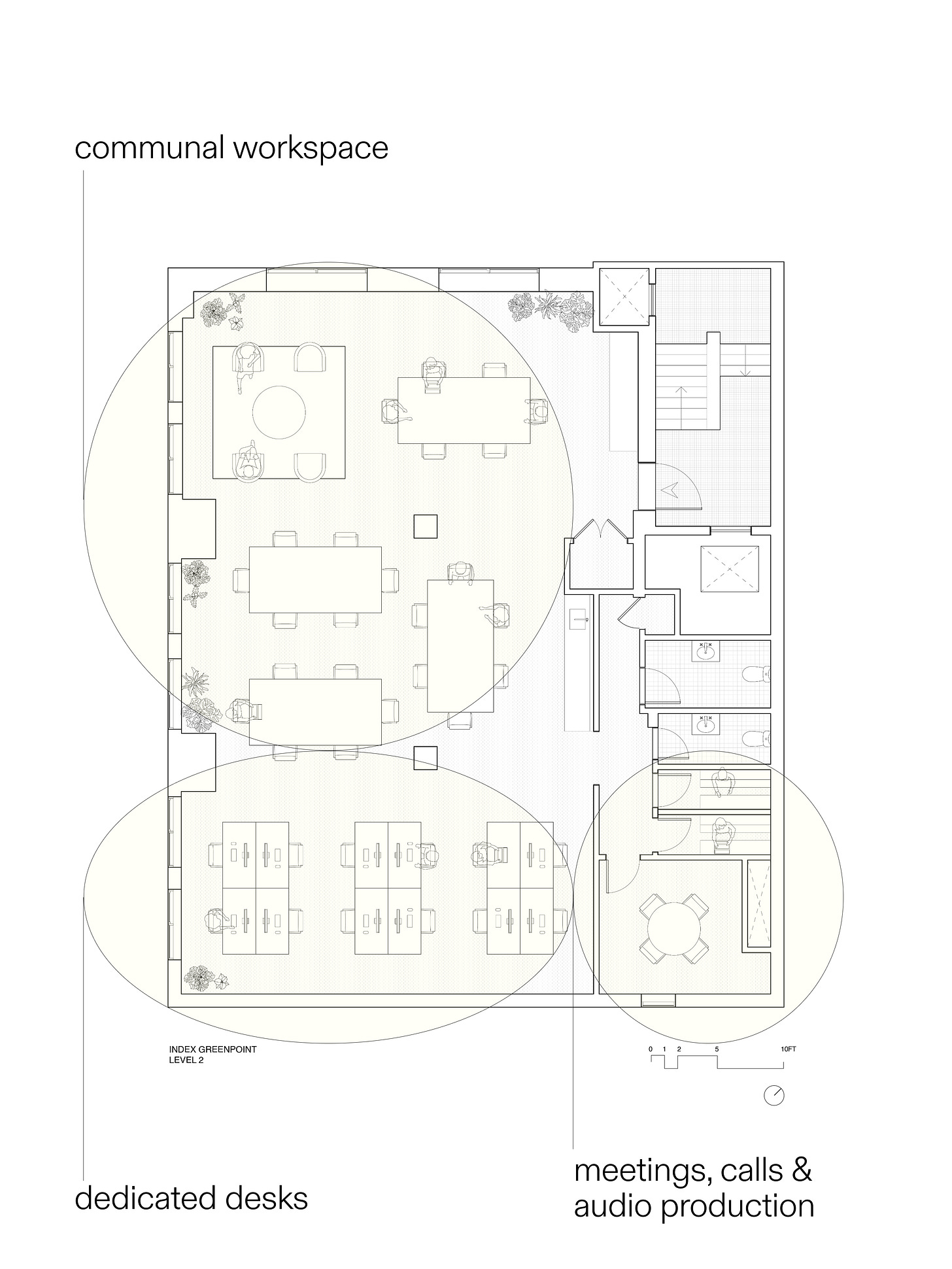
The third floor serves as more of a clubhouse, devoted to pursuits outside of work. A large kitchen, complete with stovetop, ovens, and equipment for cooking, is also rigged for photo and video production, welcoming chefs and food content creators to document their work in photo and video. A dining room table welcomes members to share meals, and a lounge area provides comfortable space to relax. The whole third floor will be set up for photography production, or rent a single room for smaller shoots. In addition to storing photography equipment, this room will also provide a more private space for classes and workshops, and enable members to host larger meetings than are currently possible.
Upstairs, the roof will be a verdant respite. Maybe a place to grow herbs, flowers, and food. Certainly a place to lie in the sun, grill food, and eat together.
Interested in joining us in Greenpoint? Add your name to the waitlist and we’ll contact you when memberships are available.
Measuring Our Plans in Decades
In my former chapter as a freelance designer, I often worked with brands gearing up to launch. I would prepare landing pages, design collateral, template out the first nine social posts, and try to leave my clients with the tools they’d need to unfurl their business to the world. Their launch was often my sign-off.
The experience of opening Index couldn’t have been more different. Launch, I learned, wasn’t the handoff of assets and pushing the website live. To launch Index was to embark on months of the hardest work of my life. Where there wasn’t money, I made up gaps with my labor, working weekends and evenings to run events, build furniture, and keep the place organized. Instead of signifying the end of a project, launching Index was the beginning of immense challenges, inspiration, and opportunity.
Stability and scale are also new concepts to me — but I’m beginning to see that as a good thing. Without being beholden to doing business as usual, our company is free to grow into what we are — a respite from the manufactured disconnection and disenfranchisement imposed by life on our phones and life in our cities.
The future of Index is inter-generational, spanning rural and urban environments, shaping new spaces formed by emergent communities to come. Next, can we open a childcare center that lessens the burden on the individual family unit, collectively providing resources, and making space for members to teach and learn from one another’s children? Someday, can one of these children open a space to serve the needs of her community?
As algorithms dictate more of what we see and believe, as we learn more from AI than from each other, as authoritarianism rises and public spaces shrink, the ability to gather in real life — to think together, build together, and care for one another — becomes essential. In this new world, opening a space can be an act of resistance against the forces that tell us we are better off atomized, passive, and alone.
We hope that sharing our knowledge and resources will make it easier for others embarking on this difficult work. To speak more about these ideas, find us at Index.
Elie Andersen
Director, Index



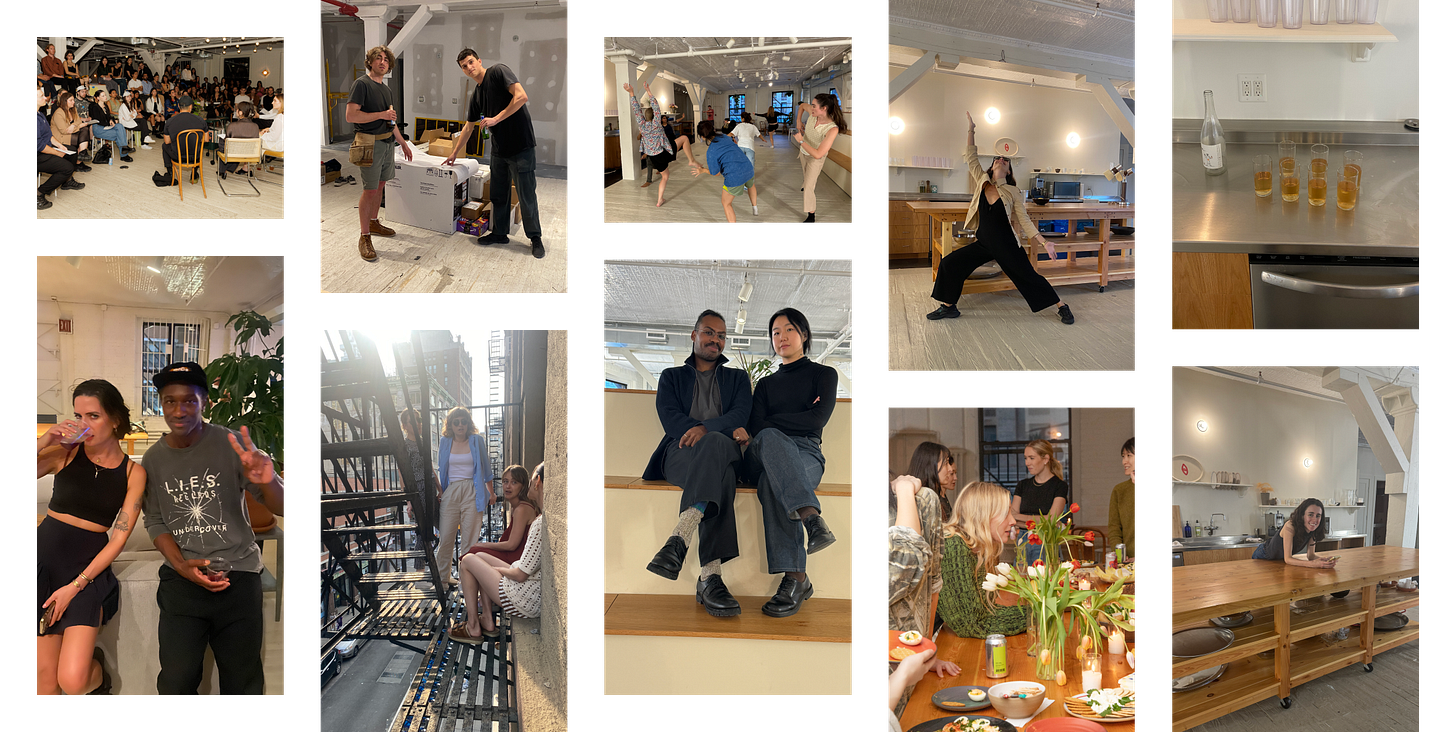
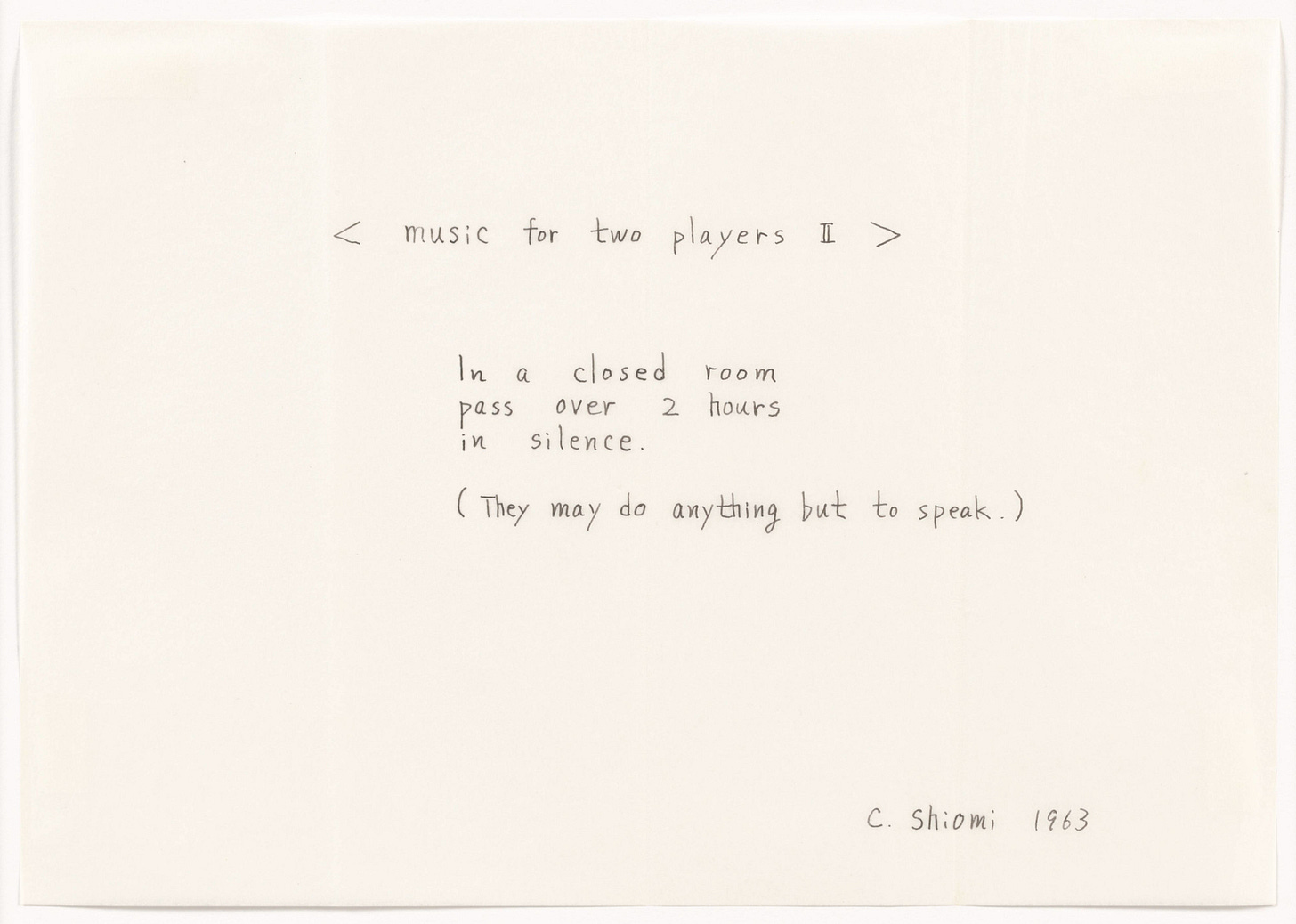

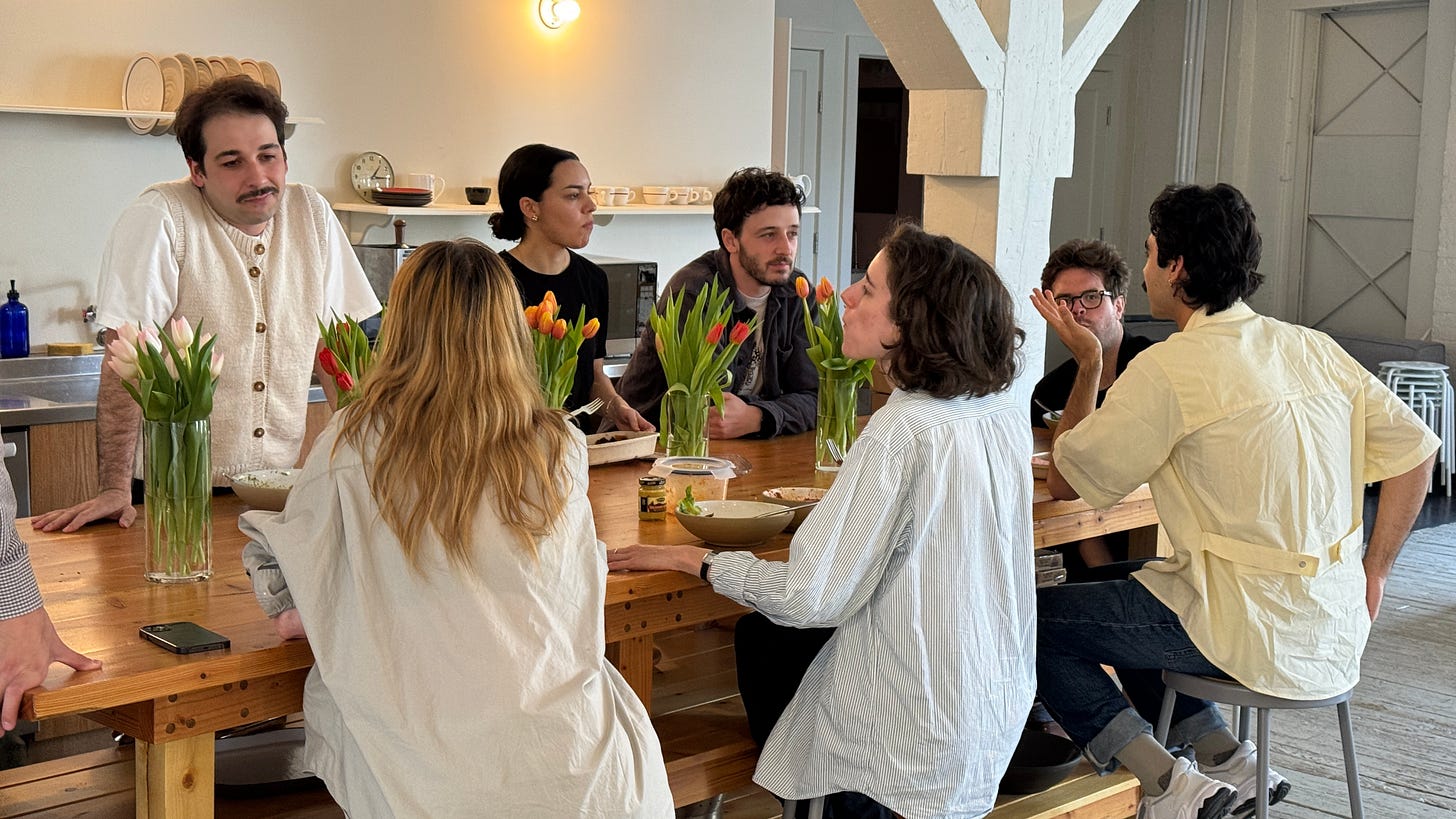
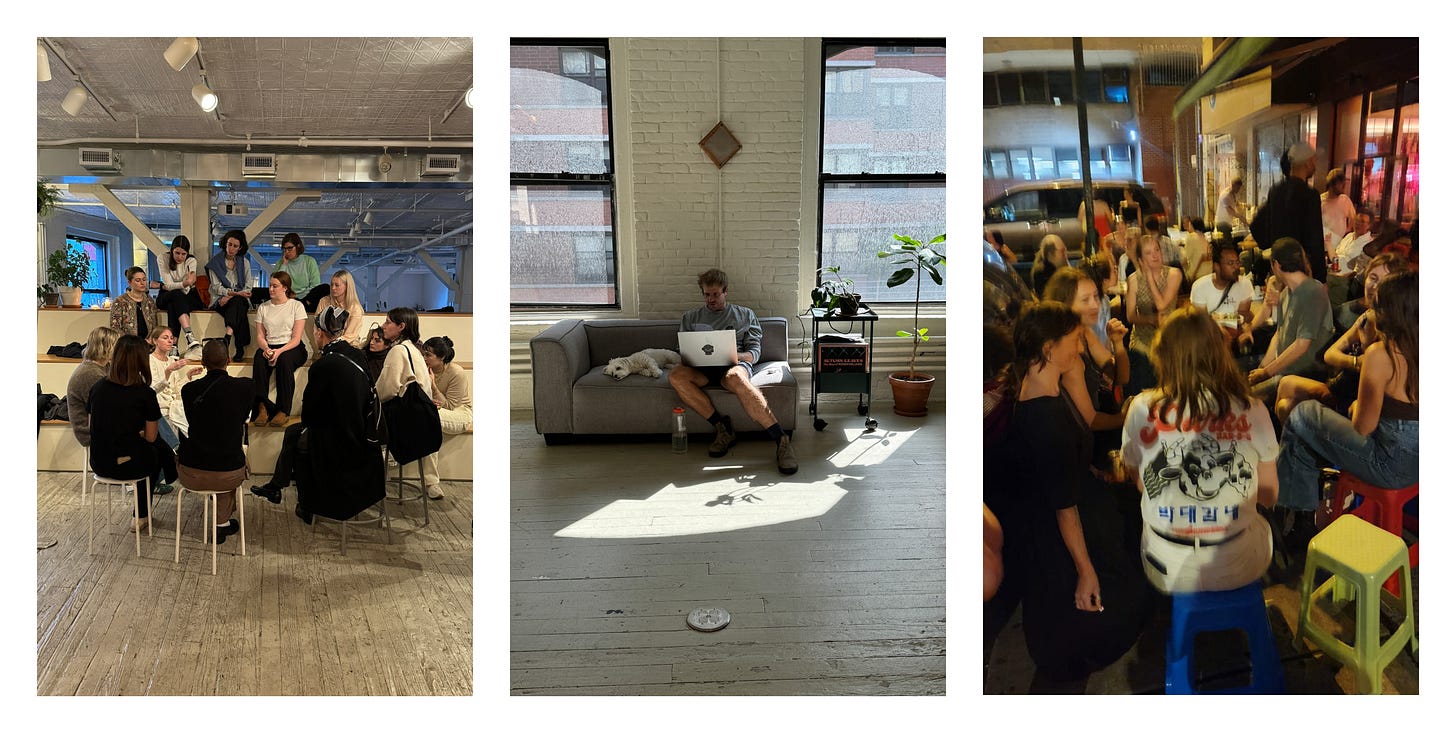
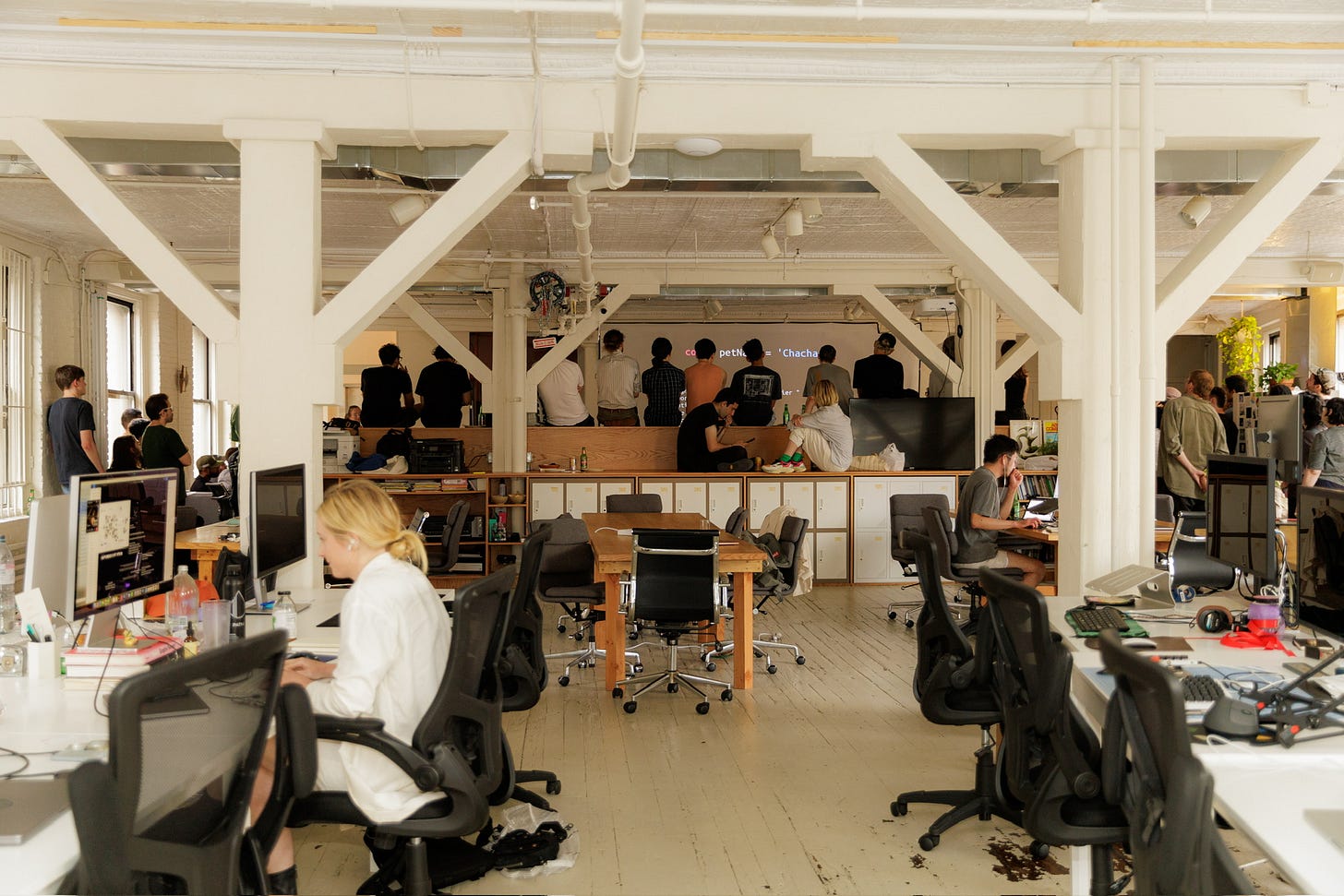
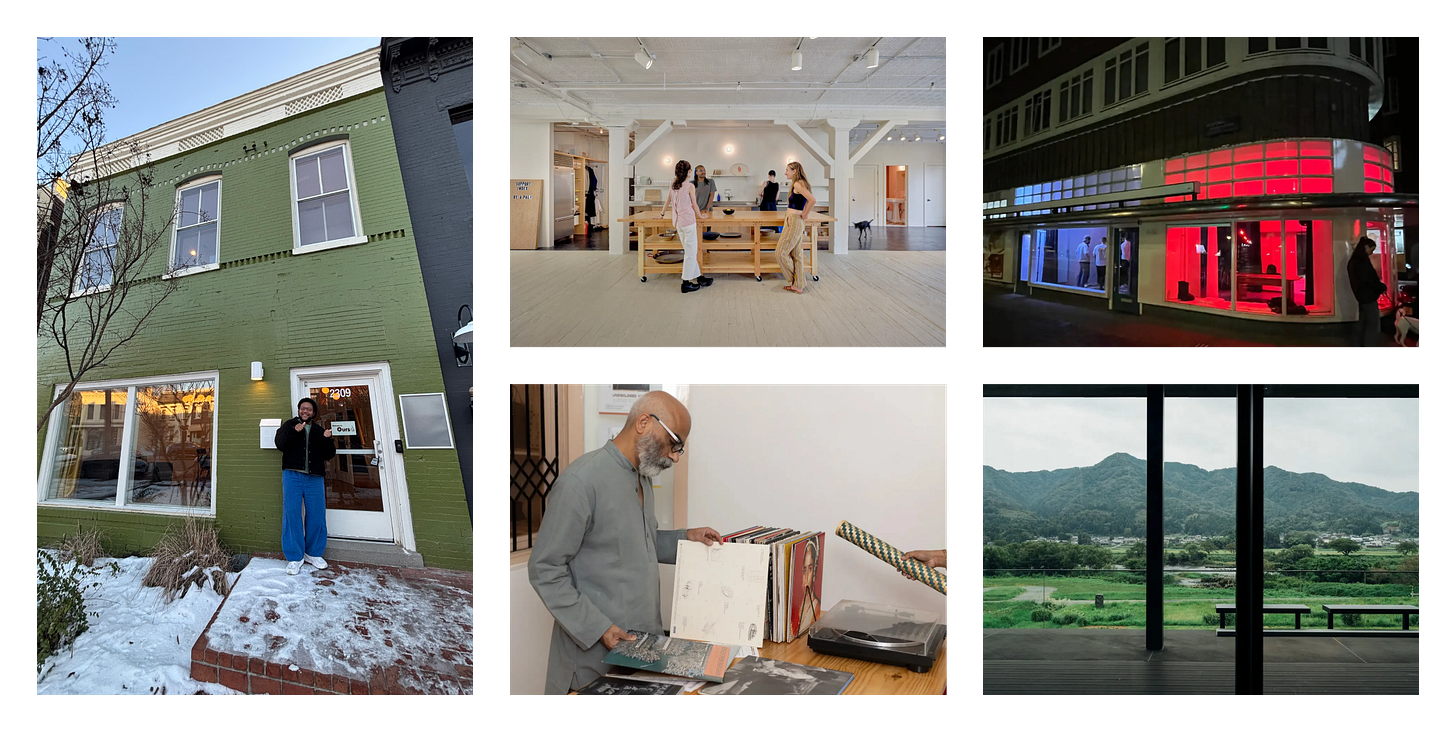
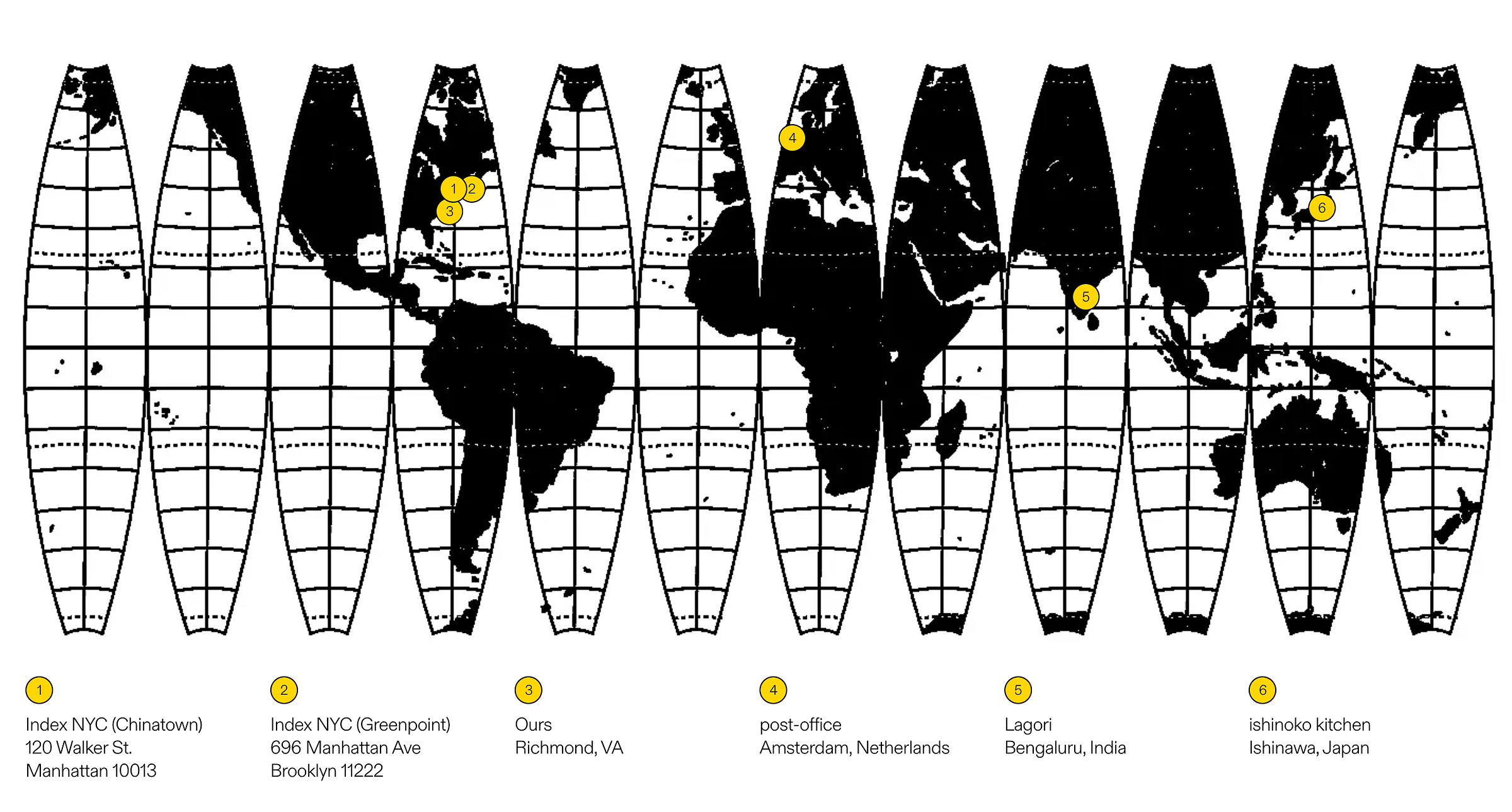
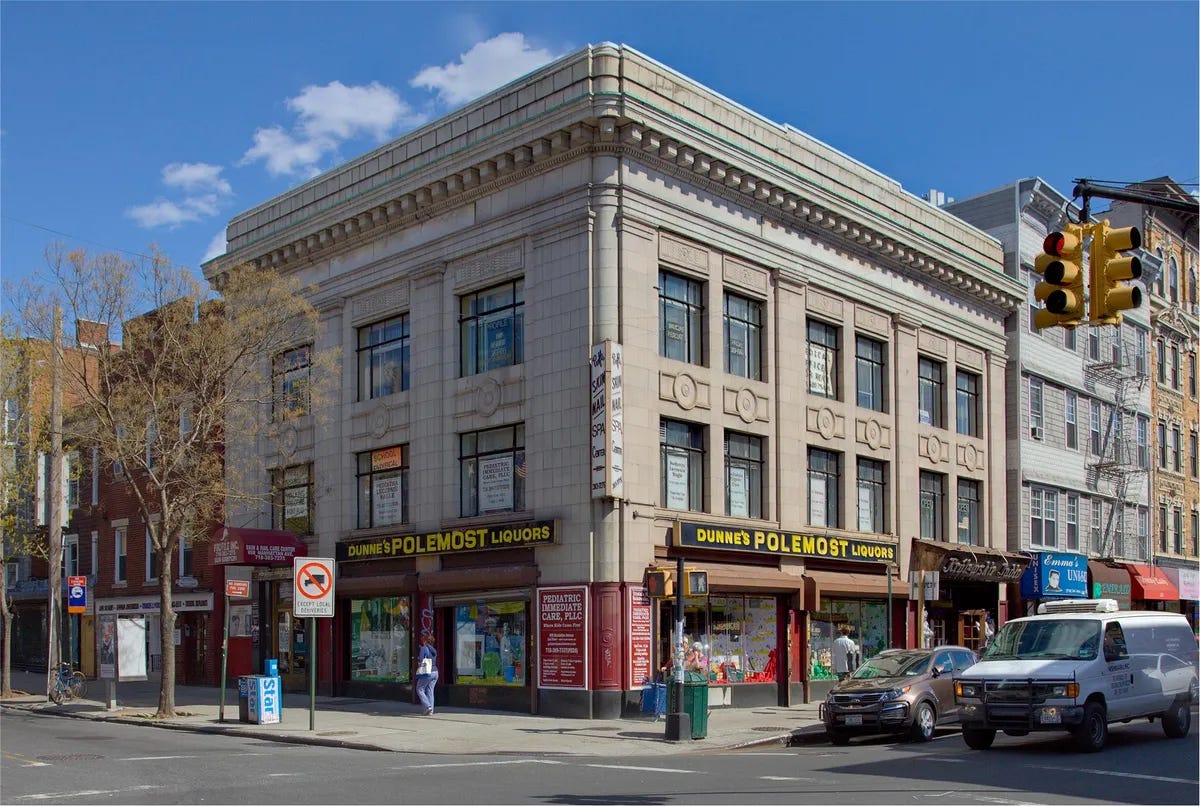
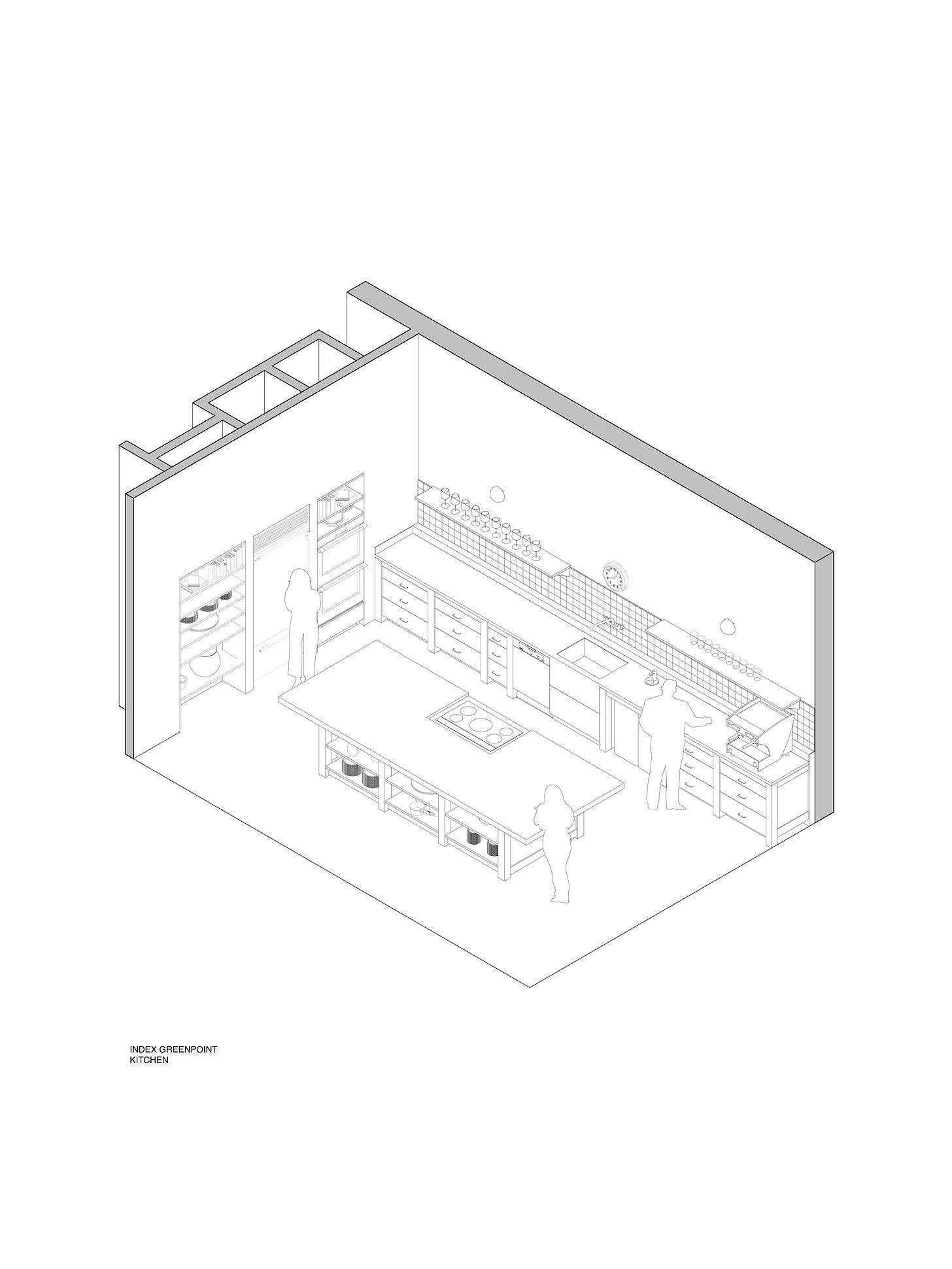
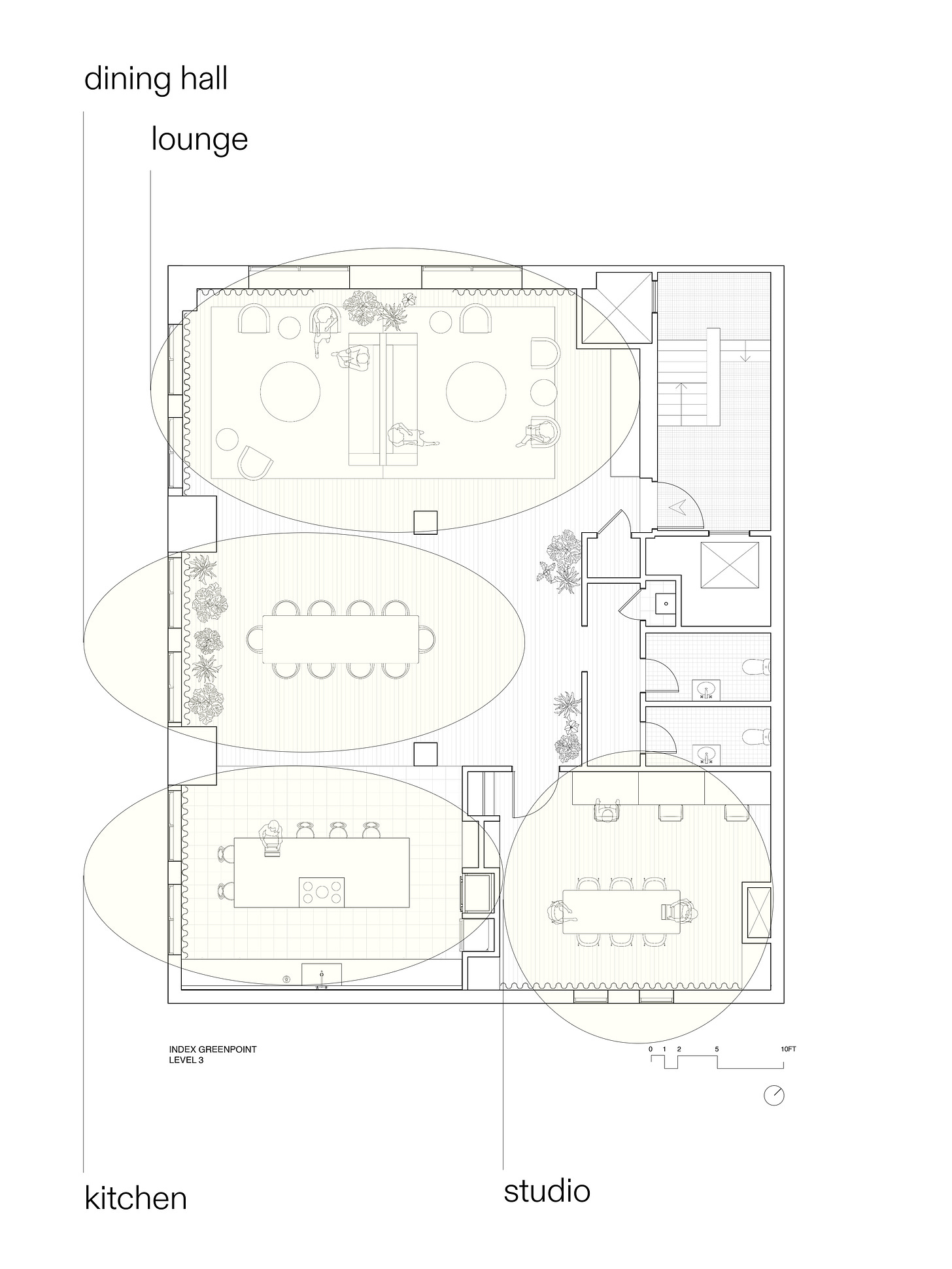
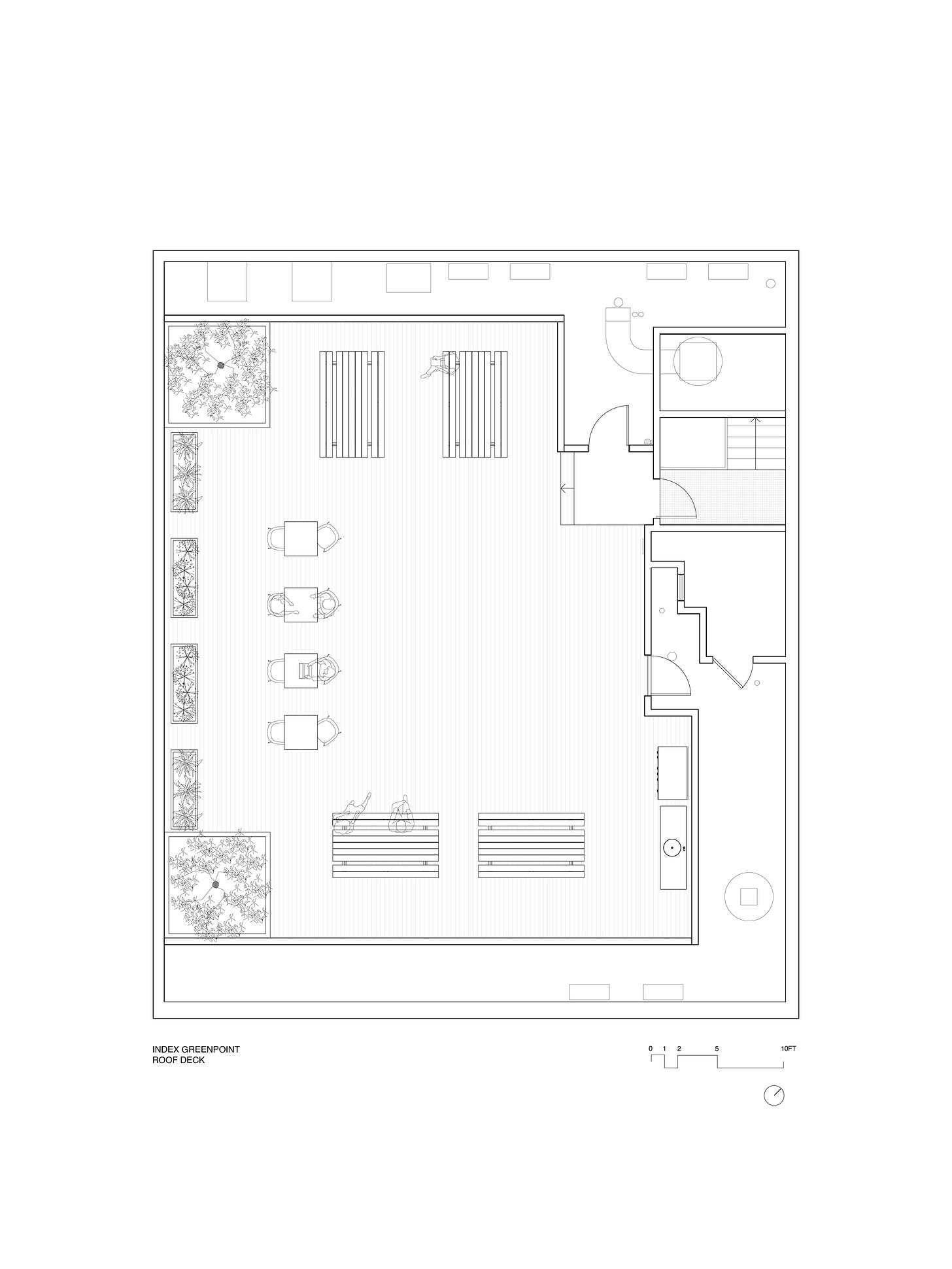

I love this line: In this new world, opening a space can be an act of resistance against the forces that tell us we are better off atomized, passive, and alone.
I’m so inspired by what you are building and hope to finally make it to the New York space soon!
My favorite communal space in New York!! Cheering you on, for all the amazing work that you do, from across the world <3